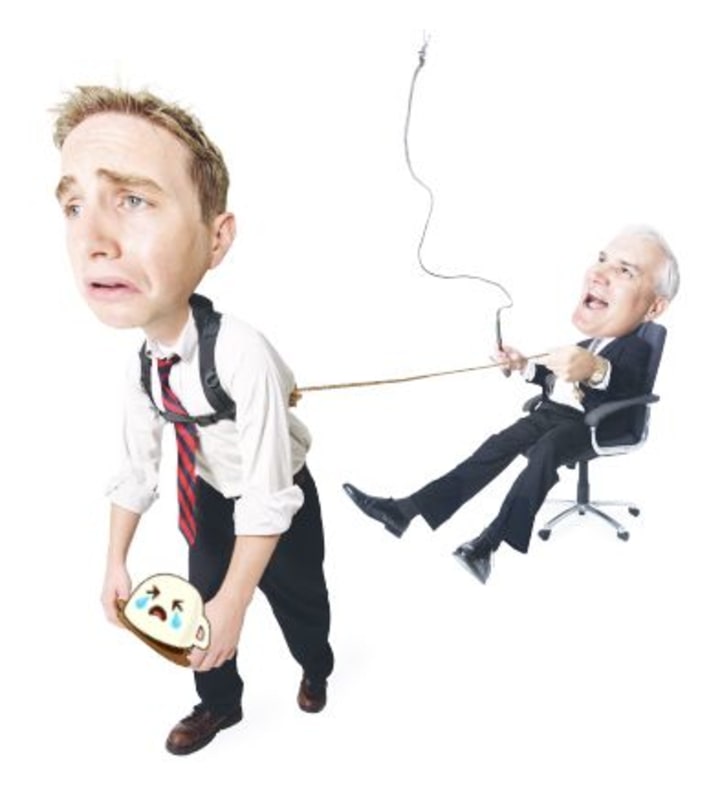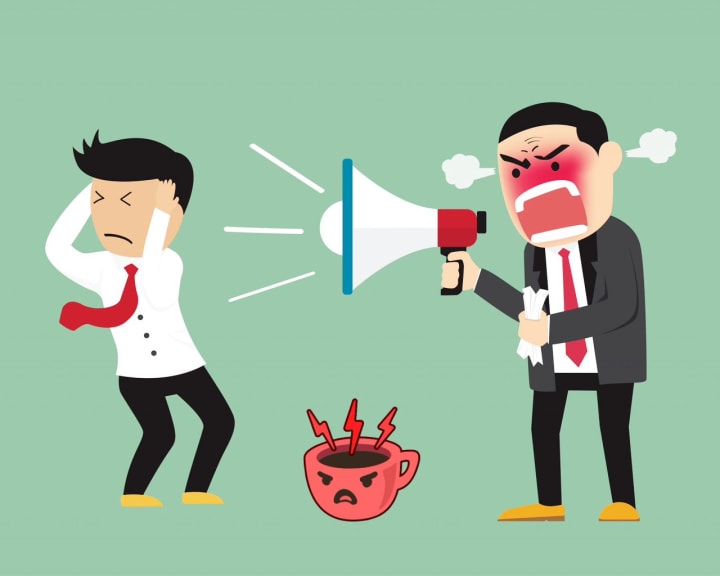
Why does employee hates their boss???
The dynamics of any workplace are greatly influenced by the intricate and diverse connection that exists between employees and their superiors. While it would be unfair to generalize and say that all employees hate their managers, there are definitely situations when this attitude is the normal. There are many things that might be blamed for this occurrence, such as poor communication, poor management, and poor workplace culture. This essay will examine some of the typical causes of employees' hostility toward their managers as well as various solutions for reducing this tension.

Communication Mistakes:
Communication failures are one of the main causes for which employees may grow resentful of their managers. A successful professional relationship depends on effective communication, which can fail and result in misunderstandings, irritation, and eventually animosity. Employers may unintentionally experience a hostile work environment if their bosses fail to communicate expectations clearly or actively listen to them.
Additionally, a lack of open communication about organizational choices and modifications can make workers feel alienated and underappreciated. The perception that staff members are kept in the dark about crucial issues can erode their respect for their bosses and foster resentment.
Management Styles:
The various management styles used by different leaders are a significant contributing element to employees' discontent with their bosses. Employees may feel constrained and undervalued as a result of authoritarian or micromanaging techniques that limit creativity and autonomy. In contrast, laissez-faire or hands-off management approaches can foster a sense of directionlessness and aimlessness, which can result in frustration and disillusionment.
Additionally, irregular or inconsistent management style might foster unpredictability and instability among employees. When goals, expectations, or feedback are frequently altered, workers may find it difficult to adjust and may even grow bitter toward their managers.
Lack of Recognition and Appreciation: Not feeling appreciated is a common problem that can make people dislike their supervisors. Employees who constantly go above and above the call of duty without being acknowledged or recognized might easily lose hope and motivation. Bosses who don't show appreciation for their team's work unintentionally foster a culture where workers feel underappreciated and taken for granted.

Additionally, a lack of supportive criticism or chances for improvement can also add to this feeling. Employees may become frustrated and resentful of their bosses if they believe that their contributions have been disregarded or ignored.
Perceived Favoritism and unfairness: Employee dissatisfaction can be greatly influenced by perceptions of favoritism or unfairness in the workplace. A sense of injustice and resentment can develop among employees when they think that some people receive preferential treatment or that chances and promotions are not dispersed equally.
Bosses must take care to level the playing field and show transparency in their decision-making procedures. These feelings of hostility can be lessened by promoting a meritocracy and making sure that rewards and recognition are given based on accomplishments rather than individual preferences.
The tense connection between employees and their managers is a complicated problem that is influenced by a wide range of factors. Anger might develop as a result of poor communication, dysfunctional management, underappreciation, and suspicions of favoritism. It is crucial to remember that there are numerous instances of excellent and productive working relationships and that not all employees have animosity toward their superiors.
Bosses must put an emphasis on open and effective communication, implement management strategies that empower and trust their team members, and make sure that awards and recognition are delivered equally in order to create a more positive work environment. Organizations may foster a more pleasant and effective work environment by addressing these underlying problems, which will eventually be advantageous to both employees and managers.
About the Creator
Hussab
I am a business man. Owning a small factory with few employees and doing my best to getting rich day by day without harming anyone’s feelings.






Comments
There are no comments for this story
Be the first to respond and start the conversation.